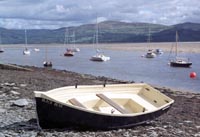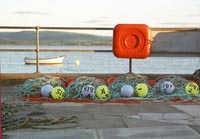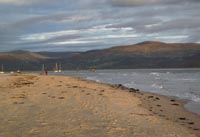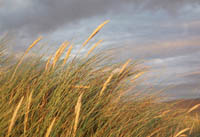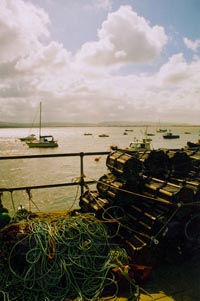Aberdovey (Aber-Dyvi) - From 'A Topographical Dictionary of Wales' (1849)
ABERDOVEY (ABER-DYVI), a sea-port and bathing-place, in the parish of Towyn, union of Machynlleth, hundred of Estimanor, county of Merioneth, North Wales, 4 miles (S. S. E.) from Towyn: the population is returned with the parish. This place is pleasantly situated on the northern side of the mouth of the river Dovey, which here empties itself into Cardigan bay, and from which it derives its name. It stands on the road from Machynlleth to Towyn, and is rapidly rising into estimation as a bathing-place: the beach is highly favourable for bathing, being composed of hard firm sand; and several respectable houses, and a commodious hotel, have been erected of late years, for the accommodation of visiters. In the year 1827, a new line of road was opened from Pennal, which, proceeding along the northern bank of the Dovey, among scenery beautifully picturesque, and embracing a fine view of the opposite coast of Cardiganshire, and the estuary of the river, passes through Aberdovey, and is continued along the shore to Towyn. For nearly the whole of its extent from Pennal to Aberdovey, it is cut through the solid rock, which, in many places, exhibits its naked side, of different elevations, forming a pleasing contrast to the wooded declivity of the hill, which, from the base to the summit, is thickly clothed with trees and shrubs of various kinds, presenting, in conjunction with the broad estuary of the river, and the vernal blossoms of the mountain heath, a scene of picturesque beauty. The ride from Aberdovey to Towyn, along the sands, at low water, is extremely delightful. The road from Pennal to Machynlleth has also been much improved, thereby increasing the facility of access to this rising place, which, for these and other advantages, is greatly indebted to the exertions of A. Corbett, Esq., of Ynysymaengwŷn, in the parish. A chapel has been erected, which is in the gift of the Vicar of Towyn; and there are places of worship for Calvinistic and Wesleyan Methodists, with Sunday schools attached. Petty-sessions for the hundred are held here, alternately with Pennal, once in two months.
The port, which is a member of that of Aberystwith, possesses a considerable coasting-trade: the imports are coal, culm, grocery, limestone, bricks, timber, &c., and the exports, timber poles for the collieries, bark, lead-ore, and slates. The harbour is excellent, but there is a bar on the north side of the entrance to it, which is said to have assumed its present position in consequence of the wind blowing so frequently from the south: two buoys, the outer black and the inner red, were fixed upon this bar by the Corporation of the Trinity House, in March 1831. The river, which is here crossed by a ferry to the opposite shore of Cardiganshire, is navigable up to Derwenl�s, within two miles of Machynlleth. There are extensive slate-quarries in the neighbourhood, and mines of lead and copper, but the latter are only worked in proportion to the demand. In making the new road, a considerable number of early English coins was found; and a vase of the Tuscan shape, capable of holding about two quarts, was picked up on the sands opposite to the port, in 1824: it is composed of burnt clay, and is nearly covered with an incrustation of oyster and other marine shells. The district called Cantrev Gwaelod, or the Lowland Hundred, traditionally reported to have been inundated by the sea, as commemorated in some of the Welsh poems, is said to have been situated between this place and Harlech: it was a tract of great fertility and beauty, containing sixteen fortified towns and cities, subject to a petty prince, called Gwyddno Goronh�r; and is stated to have been swallowed up about the year 500. Ieuan Dyvi, a celebrated bard, who flourished about the close of the fifteenth century, was a native of Aberdovey. |


